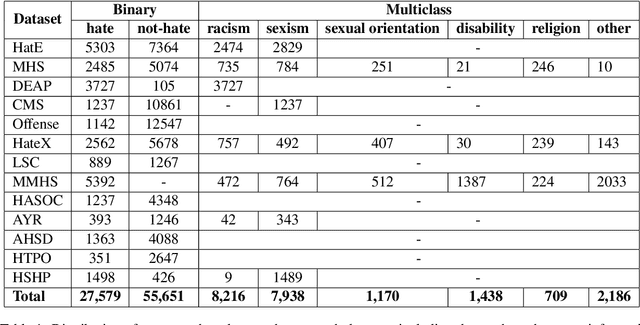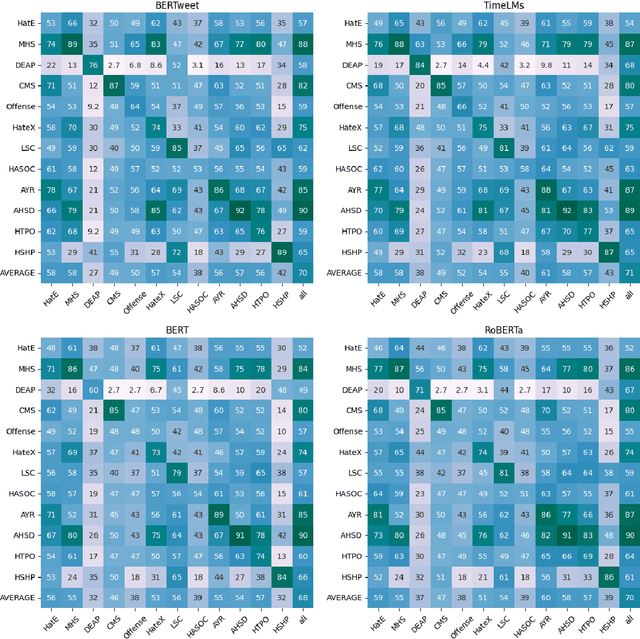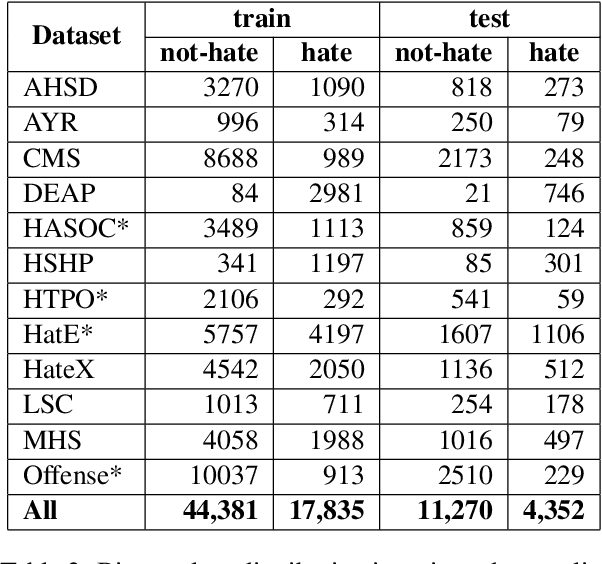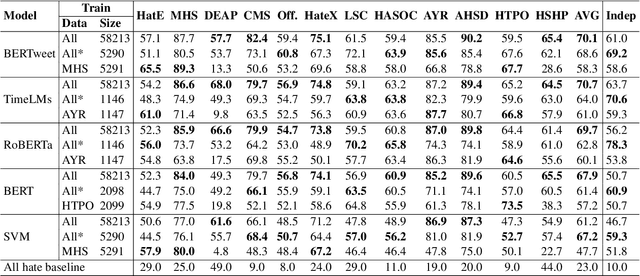Robust Hate Speech Detection in Social Media: A Cross-Dataset Empirical Evaluation
Paper and Code
Jul 04, 2023



The automatic detection of hate speech online is an active research area in NLP. Most of the studies to date are based on social media datasets that contribute to the creation of hate speech detection models trained on them. However, data creation processes contain their own biases, and models inherently learn from these dataset-specific biases. In this paper, we perform a large-scale cross-dataset comparison where we fine-tune language models on different hate speech detection datasets. This analysis shows how some datasets are more generalisable than others when used as training data. Crucially, our experiments show how combining hate speech detection datasets can contribute to the development of robust hate speech detection models. This robustness holds even when controlling by data size and compared with the best individual datasets.
 Add to Chrome
Add to Chrome Add to Firefox
Add to Firefox Add to Edge
Add to Edge